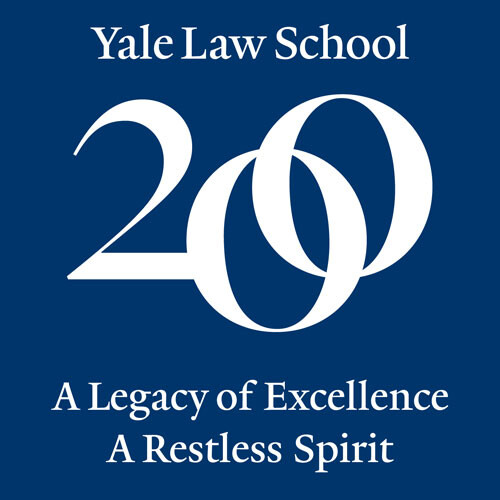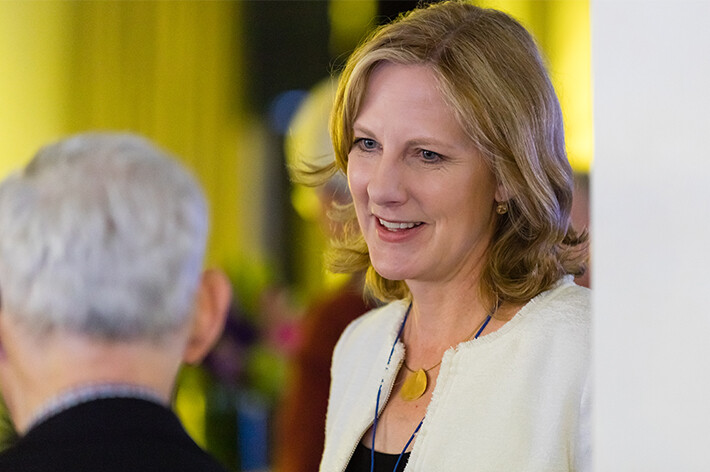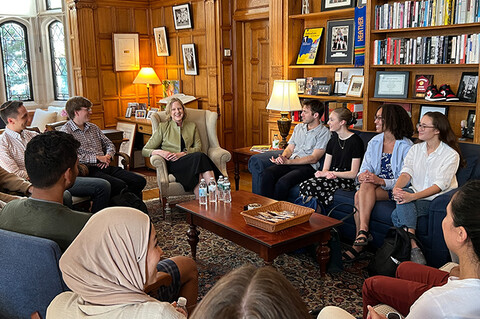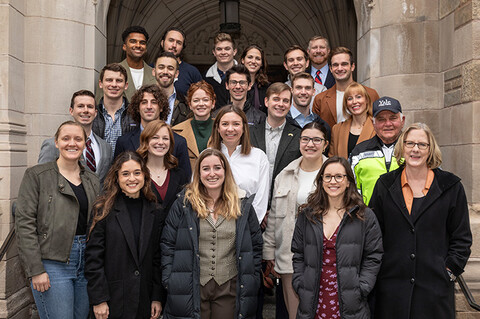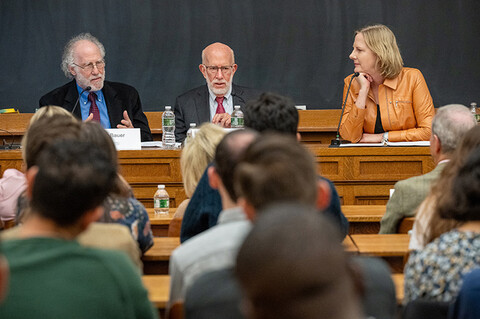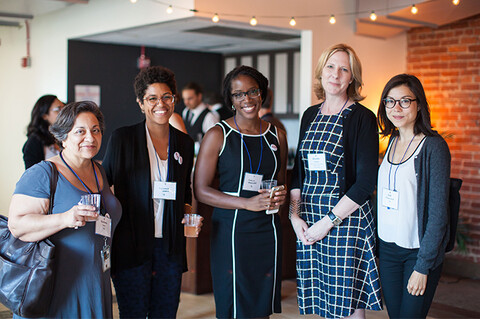Why has it been important for you to prioritize leadership during your time as dean?
I like to think of myself as a “change dean.” A “change dean” tries to change a place in order to preserve its best traditions. It turns out that leadership has always been our tradition. We've always trained leaders with a wide-ranging, eclectic approach to legal education. A YLS degree is a thinking degree, at bottom. In fact, the Law School is more like a university than any professional school I know. The School is committed to the view that whether you are a lawyer's lawyer or a lawyer writ large, you need to have a wide range of skills. You need to be a problem-solver. The Tsai Leadership Program builds on that tradition and doubles down on it. It is our chance to ensure that all of our students who are interested in taking a nontraditional career path have that path lit up for them. We are facing a future where our students are inheriting problems that are impossible to solve, and our job is to teach them how to find solutions. The Leadership Program ensures that these commitments are reflected in our curriculum, our mentoring, and our ability to provide students — especially first-generation professionals — the infrastructure they need to succeed and to connect them to the networks that they don't possess. Our aim is to build a curriculum for the next century, one that develops the next generation of broad-gauged lawyers and leaders who are ready to tackle the most pressing challenges of our time.
Leadership also means being able to engage across differences in good faith, especially in such polarized times. That is why I talk about these critical values at every orientation10 and throughout the year. As I say to our students, you cannot be a lawyer unless you can understand what’s honorable in your opponent’s arguments and the weaknesses in your own. I’m thrilled that through the Leadership Program, we recently launched the Ronnie Heyman Crossing Divides Program11 to further enhance our intellectual life and create new opportunities for our students to develop these important skills.
From left: Bob Bauer, former White House counsel under Barack Obama; Ben Ginsberg, former counsel to the Bush-Cheney campaign; and Gerken at the first "Crossing Divides" event in October 2023.
Yale Law School has 13,000 alums, and the impact and breadth of their work is enormous. What's your view on why Yale Law School has been able to train and launch the careers of so many incredible people doing such a variety of things?
In some ways, it goes back to the way our school works from beginning to end. We've always aimed to bring the most talented people on the planet here. And we define talent in a much broader way than many of our peers. It is not as simple as, “How did you do on your LSAT?” or “Did you get this grade?” That is not nearly enough. We are looking for people who can think and who can do. And it turns out that if you take 200 of the most talented students on the planet and put them together, they make each other better and they help each other along the way.
There's remarkable talent in each individual student, but it's our community that has made our alumni what they are. If you talk to any alum who has had great success, they always talk about the way their Law School peers have shaped them and how they have helped each other throughout their careers. People don't love institutions, but our alumni love this place because it was deeply intellectual, it taught them to serve, and it contained such an incredibly warm community. That's the magic of this place. I had someone say to me that the alumni are too invested in the Law School. To me that's a feature, not a bug. The alumni are aware of everything going on. They're deeply invested in this place, and that’s all to the good.
